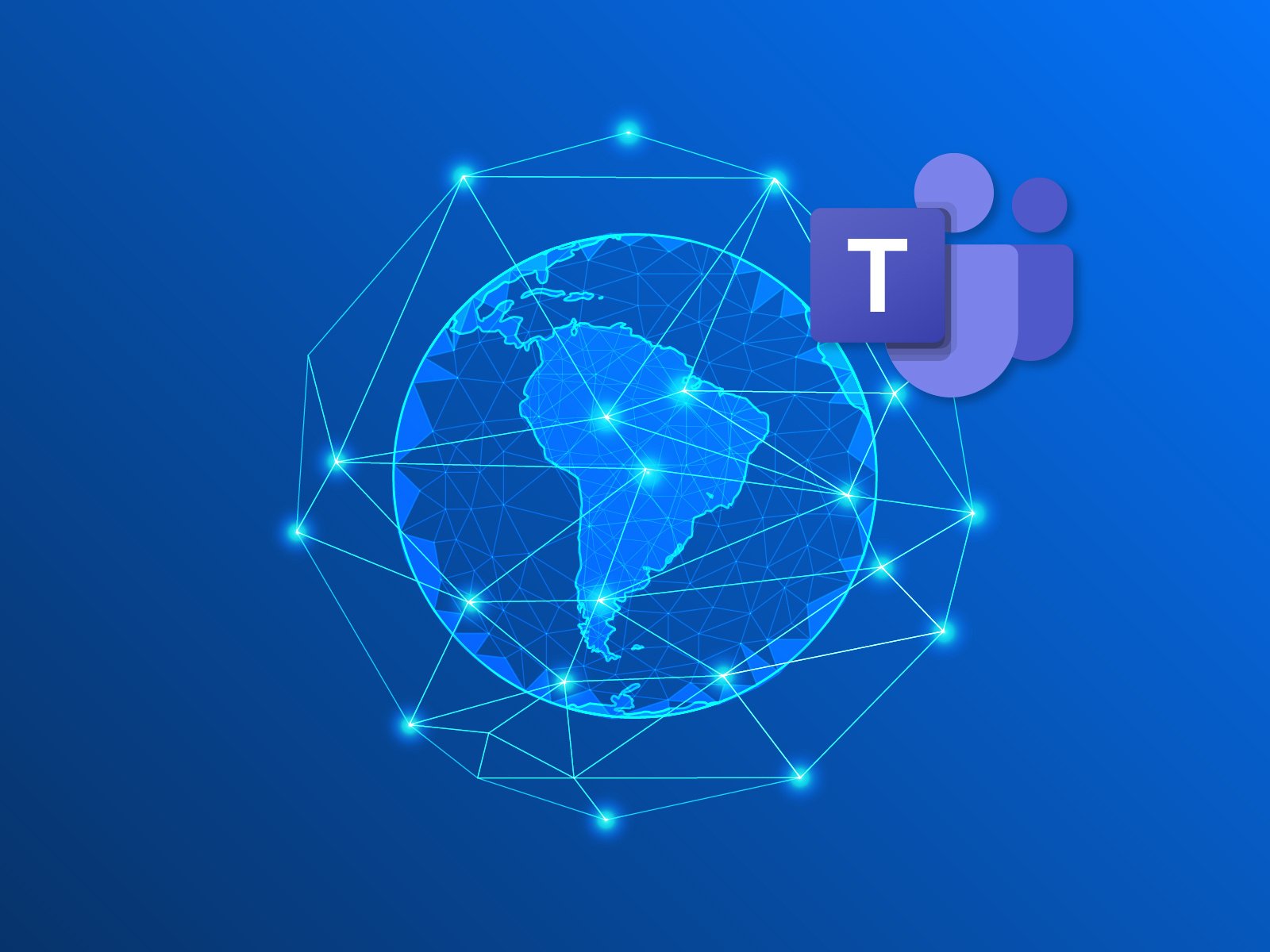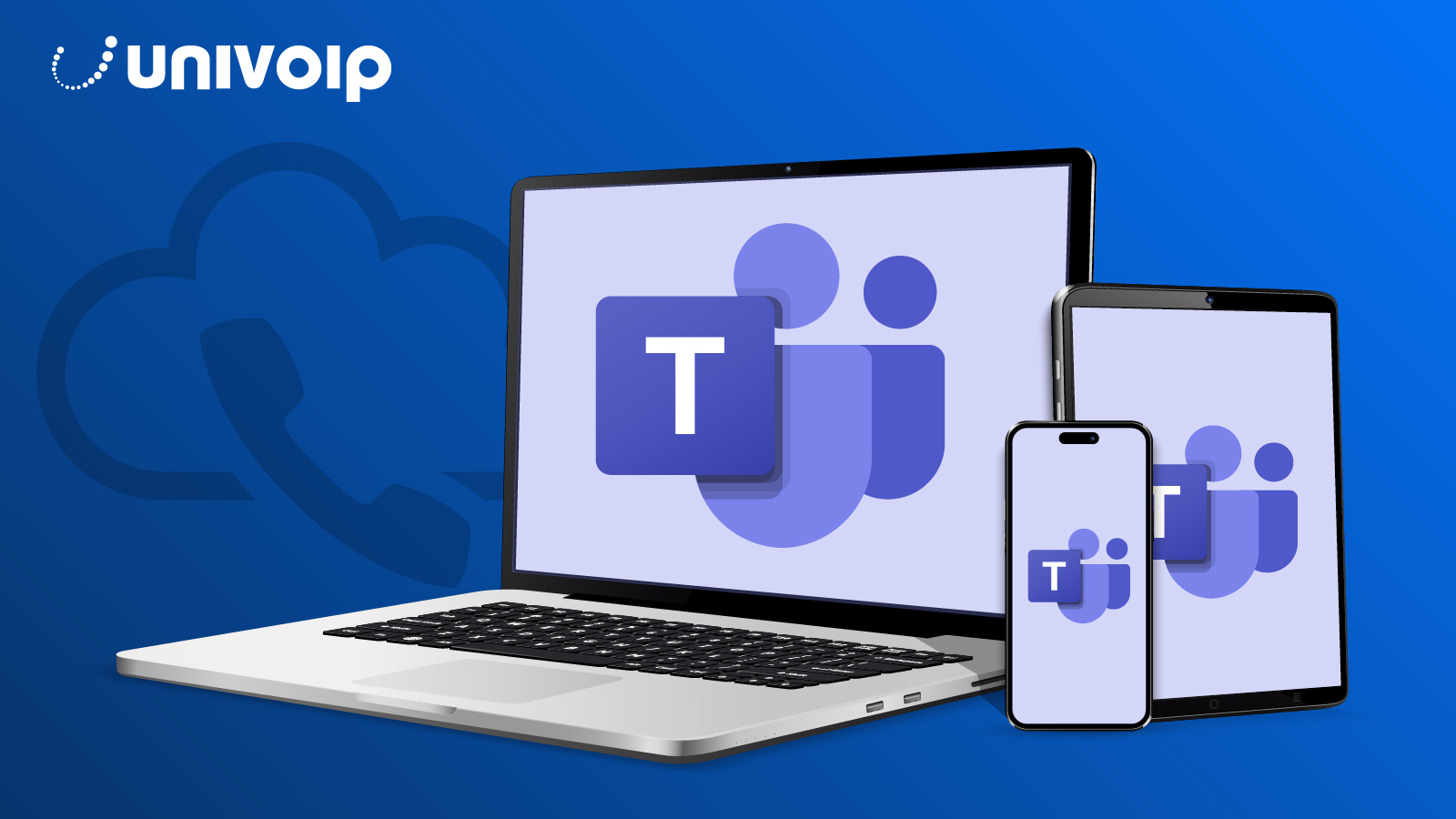Communication powers successful businesses, which could be why more than 56% of organizations planned to increase their spending on unified communications this year.1 Business leaders recognize that integrated voice, video, and messaging capabilities drive productivity and collaboration – and Microsoft Teams has become a central player in this unified approach.
While Teams excels at collaboration on its own, adding voice calling capabilities transforms it into a complete unified communications solution. For companies that already rely on Microsoft Teams as their primary communication platform, integrating professional calling capabilities into your Teams environment is easy with Microsoft Operator Connect.
But what is Operator Connect, and how does it compare to other options for enabling PSTN calling in Teams? In this guide, we’ll break down the meaning of PSTN, how Microsoft Operator Connect works, and what to look for in Operator Connect providers.

What Is PSTN? Understanding PSTN Meaning
Before we explore Microsoft Operator Connect, it helps to understand the PSTN.
PSTN (short for Public Switched Telephone Network) is the traditional telephone network that supports voice calling around the world. As the essential infrastructure of voice communication, it connects phone calls through both wired and wireless systems across different carriers and countries.
If you’re looking to set up voice calling in Microsoft Teams, you need a way to connect Teams to the PSTN. That’s where options like Operator Connect come in.
What Is Operator Connect?
Operator Connect is a service developed by Microsoft that allows businesses to bring PSTN calling into Teams with a qualified telecom operator handling voice connectivity.
Unlike direct routing, which requires manual setup and SBC configuration, or Microsoft Calling Plans, which are limited in coverage, Operator Connect for Microsoft Teams offers a more streamlined, scalable, and user-friendly way to allow PSTN access.
It’s designed to simplify the process of enabling dial tone in Teams, giving your organization more flexibility in choosing a voice carrier while enjoying the benefits of native integration and reduced complexity.
How Does Microsoft Operator Connect Work?
With Microsoft Teams Operator Connect, your voice provider connects directly to Microsoft’s infrastructure via a secure, certified interface. This connection allows your business to assign phone numbers, manage users, control call routing, and more, all within the familiar Microsoft Teams Admin Center.

Here’s how it works:
- You select from a list of approved Operator Connect providers in the Teams Admin Center.
- After choosing a provider, you can request service and assign numbers directly from the Teams interface.
- Your selected provider connects your PSTN service to Teams through a Microsoft-approved integration.
- Since the platform is cloud-based, there’s no need for on-premises hardware or session border controllers (SBCs) on your side.
- Your IT team manages all calling services in the same portal they already use for Teams and Microsoft 365.
The end result is a fully integrated calling experience that lets your team members make and receive calls without ever leaving the Teams application they already know and use.
Benefits of Using Operator Connect for Microsoft Teams
Some of the biggest advantages of Microsoft Teams Operator Connect include:
Simplified Setup
Microsoft Operator Connect is remarkably easy to deploy. Your business doesn't need to install or manage physical infrastructure like SBCs or deal with complex routing configurations. The entire system operates through the cloud and the Microsoft Teams Admin Center, ultimately reducing the technical burden on your IT team.
Carrier Flexibility
Unlike Microsoft Calling Plans, Operator Connect lets you choose your own voice provider. Your organization can take advantage of better pricing options, local support services, and advanced features offered by your preferred telecom partner while maintaining a seamless Teams experience.
Native Integration
Because Operator Connect is built directly into Teams, your IT teams can manage both collaboration and calling in a single pane of glass interface. This centralized approach reduces training time for your staff, speeds up deployment across your organization, and makes ongoing management much simpler than juggling multiple systems.

Global Reach
Many Operator Connect providers offer global PSTN coverage. That means you can assign local numbers, meet regional compliance requirements, and support users in multiple countries – all through one Teams-native solution.
Enterprise Reliability
Microsoft Teams Operator Connect uses direct peering between Microsoft and certified operators. This architecture ensures your company can enjoy high call quality standards, reduced call latency issues, and reliable service backed by formal Service Level Agreements (SLAs) from your operator partner.
Faster Support and Provisioning
When you work with an approved Operator Connect provider, support and provisioning are often faster and more personalized than what’s available through Microsoft’s Calling Plans. Providers can offer hands-on assistance with number porting, account setup, and ongoing support.
Choosing the Right Operator Connect Providers
Not all Operator Connect providers are created equal. When evaluating your options, look for a provider that offers:
- Verified Microsoft certification and direct Operator Connect integration capabilities (most Operator Connect partners rely on a third-party provider to facilitate connection to Microsoft)
- Experience with Teams voice deployments across organizations similar to yours
- PSTN coverage that matches your organization’s geographical requirements
- Competitive pricing structures with clearly defined SLAs
- Responsive support teams and a smooth onboarding process
If your business needs advanced features like E911, compliance tools, or custom call routing, make sure your provider can deliver these as part of their Operator Connect service.

Microsoft Teams Operator Connect vs. Direct Routing
Both Operator Connect and Direct Routing are popular ways to enable PSTN calling in Teams. The main difference between these approaches is how they’re set up and managed.
Direct Routing allows businesses to connect their own SBCs to Microsoft Teams, so they get full control over routing and configuration. However, this option requires more technical expertise, time, and resources to maintain.
Microsoft Operator Connect offers a managed alternative. With no SBCs to deploy and no complex setup, it’s typically the better choice for businesses that want a faster, easier path to Teams voice integration.
Power Your Teams Voice Experience With UniVoIP
If your business is using Microsoft Teams and wants to add voice calling without the hassle of building a complex telephony infrastructure, Operator Connect for Microsoft Teams may be the ideal solution. It combines the flexibility of choosing your own carrier with the convenience of native Teams integration, making it easy to connect to the PSTN and deliver a reliable calling experience.
At UniVoIP, we make voice-enabling Teams easy. As a certified Operator Connect provider, we can bring PSTN connectivity into your Microsoft Teams environment without the complexity of traditional voice setups. Plus, we offer Direct Routing services via our partner-centric Service Control portal if you prefer to go that route. Whatever you choose, we back it up with responsive, U.S.-based support, 24/7/365.
Contact us today to learn more about how our Microsoft Teams services can transform your Teams calling experience.
Sources:



